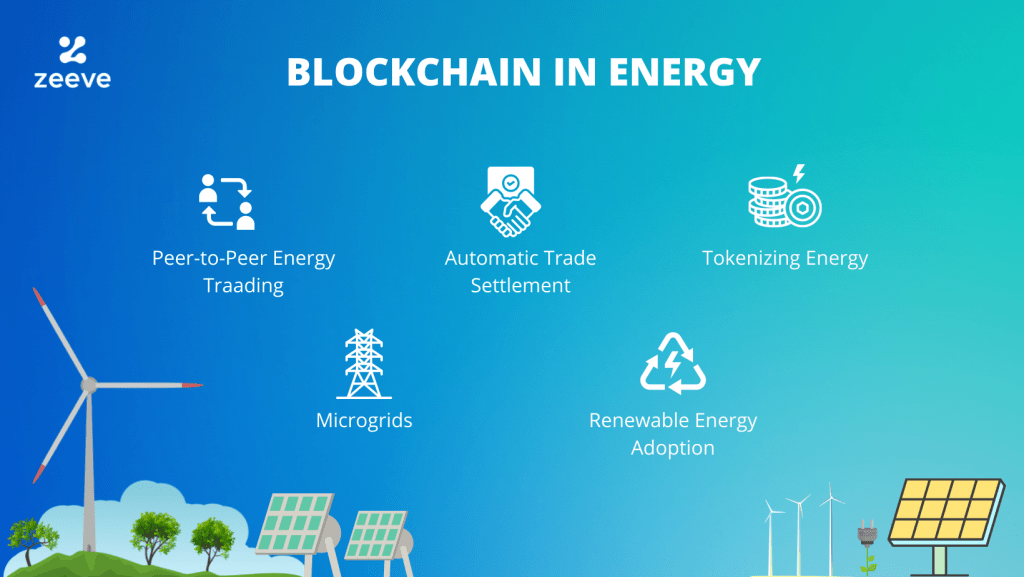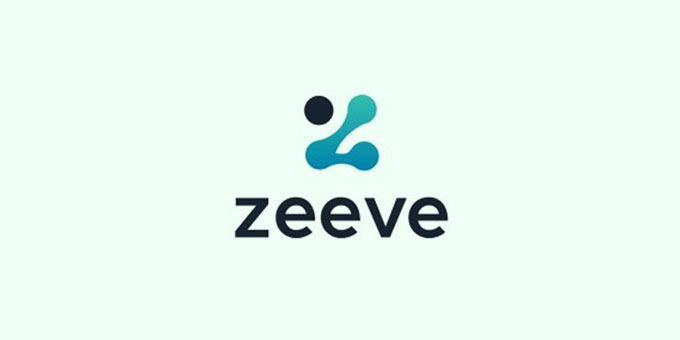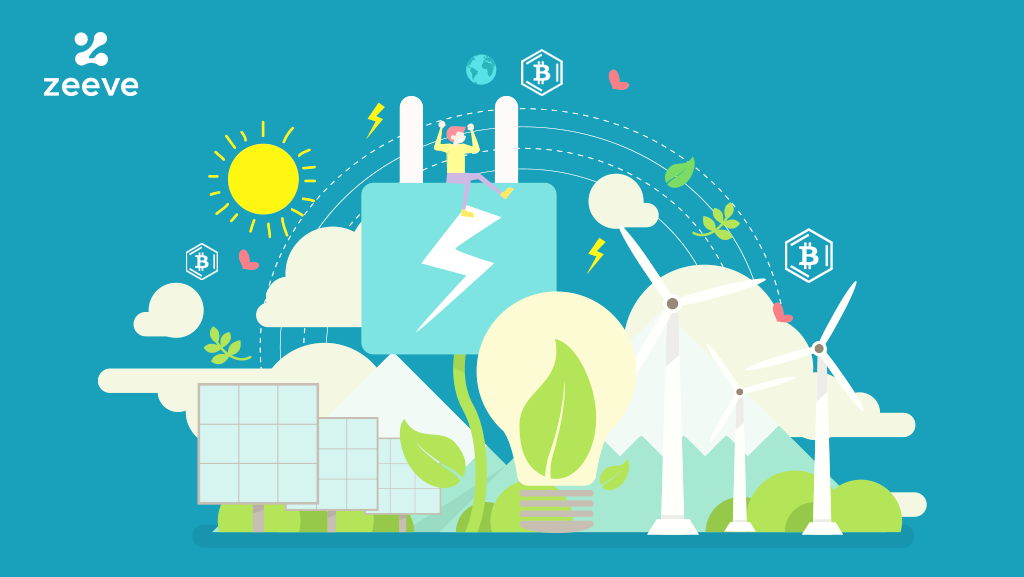From peer-to-peer energy trading markets to decentralization of the electrical grid, use cases of blockchain in the energy sector are increasing and yielding greater benefits.
The revolutionary technology of blockchain has captured the interest of several key players across various industries, taking the world by storm with its innovative applications and multiple benefits. Going by the sheer range of enterprises jumping on to this bandwagon – right from technology firms to financial institutions, from utility and energy supply organizations to academic and scientific communities and governments, the world is likely to witness remarkable improvements in recent times. One such spectacular technology innovation witnessed over the last few years is undoubtedly the coming together of this distributed ledger technology and the energy sector.
A large number of firms across the energy sector are investing heavily in this technology. In this blog piece, we would attempt to review the use cases of blockchain in the energy sector and how blockchain technology is creating endless possibilities and paving the way for new models in the industry.
Blockchain: a disruption for energy sector
The energy sector faces continuous disruptions as it is an industry marked with rapid innovations –smart electric meters to solar panels and so on. However, despite being continually catalyzed by advanced technologies, inefficiencies are quite rampant in this sector. Therefore, it becomes necessary for participants in the energy sector to make blockchain as an integral part of their working model. The complex challenges in the sector can be tackled with this distributed ledger technology with ease.
Benefits of distributed ledger technology for energy sector
The decentralized nature of blockchain makes it a real disrupting force for the energy industry. It facilitates enhanced visibility, greater operating efficiencies, and also encourages the restructuring of regulatory compliance. It is for the manifold benefits that the blockchain turns out to be the perfect answer for a changing and highly competitive space rife with several challenges- right from the progression of distributed energy resources such as microgrids to unnecessary regulation.
The use cases of blockchain technology in the energy industry are also empowering enterprises to work on perfecting their internal systems and take on a more customer-centric method. The technology is being harnessed to streamline operational efficiency with its capability to get rid of intermediaries, facilitate transparent immutable records, automate transactions and also improve security. Through its massive cost-saving features, the blockchain technology also helps to create more efficient energy commodity trading markets, while also speeding up the smart grid development process by catalyzing the integration of IoT devices and the positioning of P2P energy trading and resource-sharing networks.
It is for the wide range of benefits that a greater number of blockchain use cases in the energy and utilities has started emerging over the last few years, thereby leading to several benefits, including cost optimization and enhanced customer service. From peer-to-peer energy trading markets to the decentralization of the electrical grid, blockchain technology is gaining prominence in the energy sector.
Important Blockchain Use Cases in Energy Sector
1. Peer-to-Peer Energy Trading
One of the most significant and interesting use cases of blockchain in the energy sector is seen in peer-to-peer energy trading. Multi-faceted benefits are yielded with the coming together of blockchain in terms of community resilience formation, renewable energy expansion, financial aspects, and so on.
With peer-to-peer energy (P2P) trading, consumers are allowed to buy and sell excess energy within their community. The close-knit group of renewable energy asset owners can trade surplus energy with neighbors while gaining cost optimization benefits. There are a few popular blockchain-based peer-to-peer energy trading platforms to facilitate the trading of excessive energy.
The blockchain allows energy sector participants to do away with the intermediaries and engage in a truly P2P energy swapping process. It helps in reducing the expenses of surplus solar power being accompanied back to the network. Moreover, this way the consumers hold more authority to buy and sell energy from their fellow participants at a much more reasonable rate than their original provider. The costs involved in energy transportation can be brought down drastically since it does not require to be controlled from centrally positioned power plants.
According to reports by Wood Makenzie, nearly 59% of blockchain energy projects are directing their efforts in building peer-to-peer energy markets. This report indicates how the blockchain is gradually taking over more and more energy enterprises in its grip to revolutionize the sector and generate more spectacular innovations to watch out for in the years to come!
Furthermore, the report findings conducted by Aurora Energy show that more than 40% of the consumers’ electricity expenses go toward preserving the infrastructure. A large percentage of maintenance costs are borne by consumers for providing power to consumers’ homes from the grid. With peer-to-peer energy trading, costs involved in buying expensive wires and cables are eliminated, thus bringing in cost savings for both consumers and providers. Blockchain technology facilitates transparency in the energy sector and consumers can buy energy from trusted sources and also contribute towards the improvement of specific local communities.
2. Access to Renewable Energy
One more exciting blockchain use case in the energy sector is streamlining access to renewable energy with the Renewable Energy Certificates (RECs). Energy providers can remove the risks of fraud by leveraging the cryptographic digital ledger’s ability to facilitate secure and immutable transactions. It is useful for tracing and also validating the REC transactions automatically and instantly. Energy providers can also prevent the dangers associated with the selling of energy credits more than once as duplicate transactions are signaled as invalid. The digital ledger provides cryptographic security to the records, thereby ensuring that none can tinker with them, while providers are also certain about the origin of the energy. This further allows the energy providers to have access to sustainable renewable energy.
3. Automatic Settlement of Trades
Blockchain technology with its ability to remove intermediaries can significantly benefit energy providers as they would no longer have to rely on manual settlement of trades. The technology can facilitate automatic settlement of transactions and also all transactions would be recorded on every node, making it immutable and secure. Energy providers can also engage in peer-to-peer energy trading due to the smart contracts facilitated by blockchain technology. Moreover, the trades are done in a streamlined manner since there are no middlemen or brokers, thus also leading to a more economical and rationalized approach.

Smart contracts of blockchain technology are useful not just for the automatic settlement of transactions for the financial trades but also for the physical trades. It is for automatic triggering settlements and tamper-proof, secure transactions for which the blockchain use cases in sectors such as sustainable and renewable energy, oil, and gas are rising. Research reports from the EY also show enterprises using blockchain in the energy and utility industry for automatic trade settlements are procuring cost savings of nearly 30–60%.
4. Microgrids
Another interesting use case of blockchain technology is the microgrid. The decentralized nature of blockchain technology allows users to handle complex transactions without the need for middlemen or intermediaries. Moreover, blockchain technology also cuts down the costs and mitigates the transmission losses by deferring the need for costly network upgrades.
The nature of microgrid’s distributed electricity generation will help in resourceful energy management. It will also ensure steadiness of supply, and provide a steady backup power to protect against outages.
The centralized electricity grid management systems find it difficult to provide for integration of both the IoT devices and distributed electricity generation ((DER) will. As opposed to centralized electricity grid management, electricity generation systems supported by blockchain technology will enable smooth integration and also give way to the emergence of next-generation smart grids.
Users in the energy and utility sector, ranging from small-scale retailers to large-scale producers and traders can also carry smooth and easy transactions thanks to the decentralized blockchain applications. Users in the household, as well as business segment, can engage in energy trading without the help of intermediaries and also do not require the permission of central authorities. This results in efficient energy management and reduced costs.
5. Introduction of Smart Meters
The use cases of blockchain are also on the rise and a major example can be seen in the energy sector, especially in the rise of the use of smart meters. Consumers can assess the total usage of electricity with the help of smart meters which is believed to give an accurate recording of the energy consumption by the user. The information about the power usage determined at regular intervals of the day is then provided back to the energy and utility sector through the traditional intermediaries. However, blockchain technology provides a way for removing the middlemen and thus the information recorded by smart meters can be stored on the distributed ledger and also automatically be accessed by the energy provider. It results in streamlining of energy operations, management and also proves to be quite cost-saving. It completely eliminates the need for different changes of hands and lets businesses adopt a more customer-centric approach by facilitating direct communication with their clients.
6. Climate finance
There is immense political and social pressure on the participants in the carbon credit and renewable energy certificate markets. The multiple barriers, including structural and process barriers, cannot be overruled utilizing the legacy centralized data management tools and traditional governance processes. This leads to inefficiencies in the energy markets where key players struggle to effectively measure the carbon risks. Moreover, it consequently causes the energy sector to successfully respond to the growing climate risks.
Thanks to the decentralized nature of the blockchain technology and the governance systems supported by it, energy sector participants can execute rational pricing, efficient energy trading, and also effective management of carbon credits. The distributed electricity generation also paves the way for effective management of low carbon investments, and renewable energy certificates globally.
The energy sector can override the political, environmental, social, and structural challenges posed by carbon credit with its strong and transparent framework. Market participants are provided with much-needed levels of the transparency needed to carry out secure transactions with the use of an immutable, secure, and verifiable ledger. With these features of blockchain technology, carbon performance can be the main driver of the cost of capital. This is a requirement if climate risk within investments is going to have pricing associated with them and someone has got to take on those risks for their own gain.
Additionally, the tokenization of low-carbon financial instruments can increase accessibility for investors, further driving the uptake of climate-sustainable investments.
Wrapping it up
Investments in integrating the revolutionary blockchain technology in the energy sector is projected to touch more than $5.8 billion by 2025, thus indicating that the use cases of blockchain in the energy industry will rise at a rapid rate. Enhanced data management tools and decentralization of the electrical grid networks are expected to bolster more innovations in the space. The distributed ledger will hold secure, immutable records of all agreements pertaining to buying and selling of electricity, offering all participants and stakeholders a greater degree of transparency. All transactions are executed and also verified in real-time, thus ensuring the authenticity of transactions.
Besides the above features, blockchain technology in the energy sector provides for improved resiliency, smart contracts help in the automation of the buying and selling process, thereby eliminating the need for cost-burdening intermediaries.
Though there are challenges, the overall trends of blockchain integration in the energy sector are optimistic as the pros far outweigh the bottlenecks by a significant margin. The application of blockchain in energy is most likely to remove all possible inefficiencies and create energy systems that are more decentralized, active, and benefit multiple participants.
FAQs
Q1. How is blockchain used in renewable energy?
Blockchain in the energy sector is a favorable application and its capability to record transactions and facilitate greater benefits including peer-to-peer trading, smart meters, and trading of excess renewable energy through automated smart contracts.
Q2. Why must the energy sector embrace blockchain now?
The hopes and dreams of players in the energy sector can now be brought closer to reality with promises that this new technology will drastically accelerate the process with seamless transactions, bringing down costs by facilitating a trusted transfer of value without the participation of any traditional intermediaries.
Q3. Does blockchain use a lot of energy?
Apparently, blockchain is known to consume a good amount of energy. According to recent papers on the blockchain consensus mechanism, the blockchain can consume up to above 1000 watts based on the hardware type.
Q4. Why does Bitcoin take so much energy?
Bitcoin mining is completed using powerful computers that can generate thousands, millions, and even billions of hashes per second. It consumes large amounts of electricity.
Zeeve’s Solutions
Zeeve is a platform that offers Blockchain as-a-service (BaaS) to help enterprises and startups build, deploy & manage reliable decentralized apps.






















